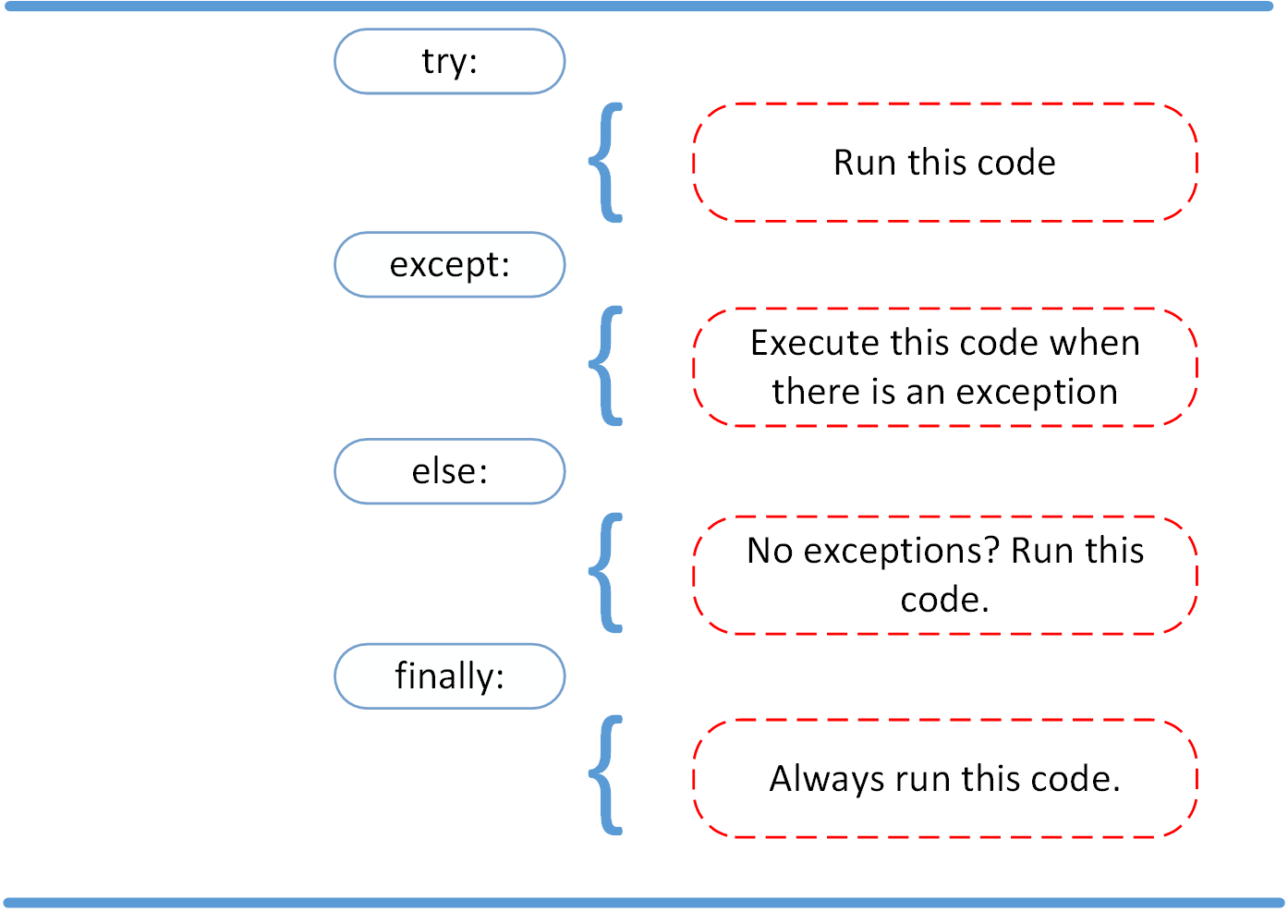Antwort Does raise exception stop execution? Weitere Antworten – Does raising an exception stop the program

With the raise keyword, you can raise any exception object in Python and stop your program when an unwanted condition occurs.Raising an exception is a technique for interrupting the normal flow of execution in a program, signaling that some exceptional circumstance has arisen, and returning directly to an enclosing part of the program that was designated to react to that circumstance.If your code raises an exception in a function but doesn't handle it there, then the exception propagates to where you called function. If your code doesn't handle it there either, then it continues propagating until it reaches the main program.

Does raise in Python stop execution : raise() is a function that interrupts the normal execution process of a program. It signals the presence of special circumstances such as exceptions or errors. The term “throw” is used synonymously with “raise.” However, “throw” is not a Python keyword.
How do you raise an exception without stopping a program
Along with the use of "try-except" statement, since after all, you can raise exceptions without quitting the program, by adding something in the except clause.
Does exception stop execution in Java : When an exception occurs, the Java runtime stops the execution of the current method and passes the exception object to the nearest catch block that can handle it. To throw an exception, you can use the throw keyword followed by the exception object. There are two types of exceptions in Java: checked and unchecked.
In Python, you can continue execution after an exception using a try-except block. Wrap the code that might raise an exception inside the "try" block, and if an exception occurs, it will be caught in the corresponding "except" block.

If an exception is thrown from the try block, even when there's no catch block to handle the exception, the finally block still executes, in which case the exception is still thrown immediately after the finally block finishes executing. The following example shows one use case for the finally block.
Do exceptions slow down code
The key takeaway is that throwing an exception makes a method run hundreds of times slower.except is used within a try-except statement, meaning there is an error within your code that caused this exception to be raised. Raise is used for signaling an exception that you want to point out. An example: for x in range(5): if x < 3: raise Exception('x is less than 3') else: print('x is 3 or higher')In managed and native code, you can continue execution in the same thread after an unhandled exception. The Exception Helper unwinds the call stack to the point where the exception was thrown.

Exception handling allows the program to continue to execute even if an error occurs. This is an example of the syntax for handling exceptions in Python. A try block contains code that can throw an exception ⚠️. If an exception occurs, the code in the except block is executed, which helps to handle the Exception.
How to continue execution after exception in Java : When a checked/compile time exception occurs you can resume the program by handling it using try-catch blocks. Using these you can display your own message or display the exception message after execution of the complete program.
How do you stop current execution in Java : To stop the execution of further code, we can use a flag variable. System. exit(0) is commonly used to terminate the currently running Java program with an exit status of 0. We terminate the program using System.
How does raise exception work in Python
The raise statement without any arguments re-raises the last exception. This is useful if you need to perform some actions after catching the exception and then want to re-raise it. But if there wasn't any exception before, the raise statement raises a TypeError Exception.
An exception could occur during execution of an except or else clause. Again, the exception is re-raised after the finally clause has been executed.The raise statement is often used in low-level code that can detect but not handle an error. The try-except blocks are in higher-level code that calls these low-level functions and knows how to handle the errors. This separation allows for modular code where each function specializes in a single task.
Why avoid exceptions : Exceptions are a rare event, so the normal program shouldn't pay for them. Also, exceptions from anything other than error conditions are quite confusing to the user of your class or function.



